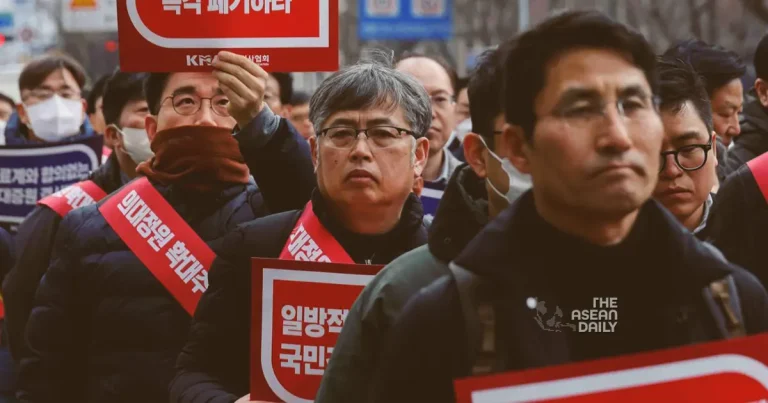30-7-2024 (SEOUL) South Korea’s healthcare system is on the brink of a cardiac care crisis as the ongoing nationwide doctors’ strike enters its seventh month. A recent study by The Korean Society for Thoracic and Cardiovascular Surgery has unveiled an alarming shortage of cardiology residents, with only 12 out of 107 still on duty across the country.
The research, conducted over a three-day period last week, paints a grim picture of the current state of cardiac care in South Korea. A staggering 75 residents have already resigned, while 20 more have pending resignation requests. This mass exodus has left several major regions, including Gangwon and North Chungcheong Provinces, completely bereft of cardiology residents.
This crisis is unfolding against the backdrop of South Korea’s centralised healthcare system, where the Health Ministry annually determines nationwide residency quotas by specialty and region. Historically, specialties within emergency medicine and critical care have struggled to attract candidates due to demanding working conditions and limited career prospects. However, the current situation in cardiology is unprecedented in its severity.
Cardiology residents in South Korea face particularly gruelling schedules. Data from the Korean Intern Resident Association reveals that in 2022, these specialists worked an average of 102.1 hours per week – a shocking 30% above the average for residents across all medical specialties. This punishing workload has contributed to the chronic unpopularity of cardiology residencies, with only 21 doctors applying for 56 positions in major hospitals for the upcoming academic year.
The ongoing strike has exacerbated these pre-existing staffing issues to a critical degree. Without swift intervention, projections suggest that only six new cardiac surgeons will enter the workforce in 2025, a number woefully inadequate to maintain the nation’s cardiac care services.
The Korean Society for Thoracic and Cardiovascular Surgery has sounded the alarm, emphasising that current staffing levels are critically insufficient to meet national medical demands. “With only 12 residents, it’s simply impossible to perform the country’s annual 20,000 heart and lung cancer surgeries,” the society stated, calling for urgent measures to create conditions that will entice striking residents back to their patients.
This crisis not only threatens the immediate health of patients requiring cardiac care but also poses long-term challenges to South Korea’s healthcare system. The shortage of trained cardiac specialists could lead to increased waiting times for crucial surgeries, potentially compromising patient outcomes and placing additional strain on an already burdened system.




